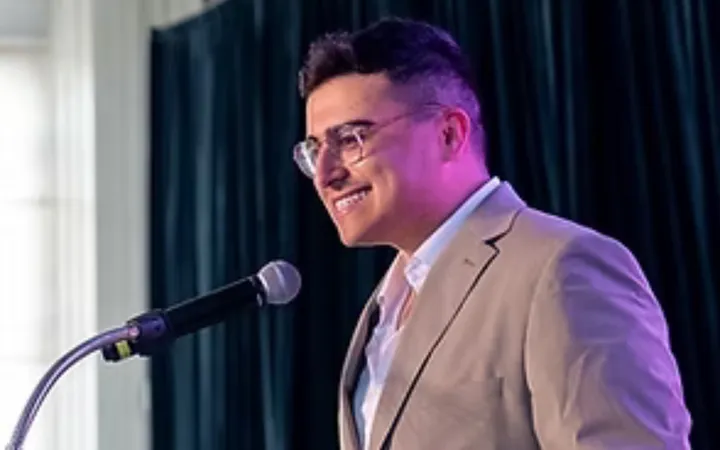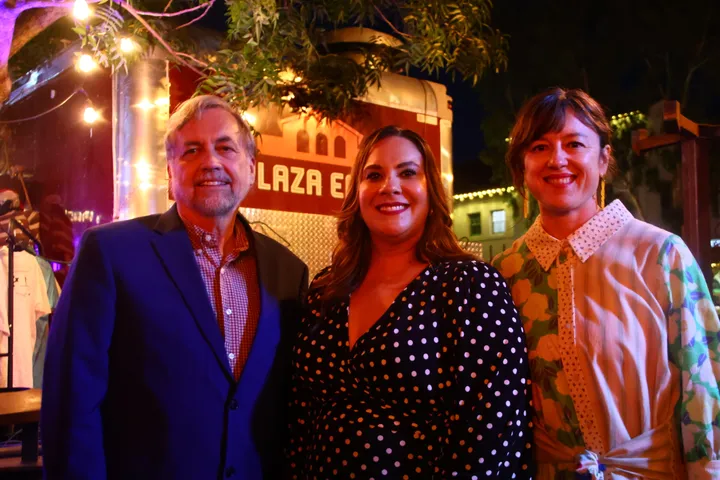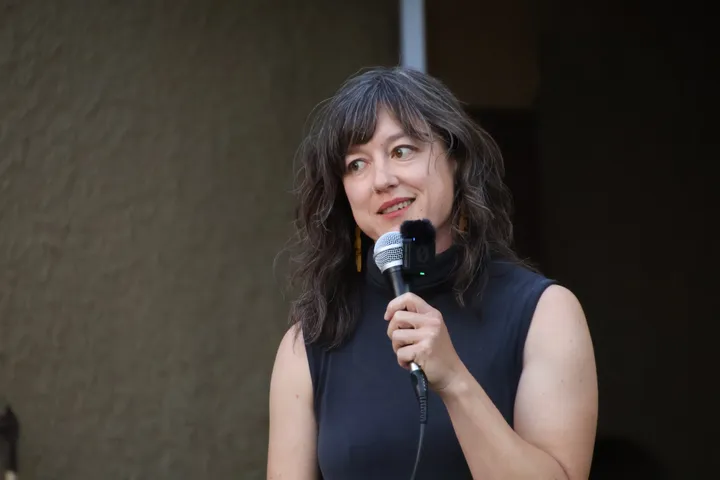Ward 6 candidates call for transparency, accountability
Ward 6 City Council candidates outlined their visions on homelessness, public safety, and government transparency during a community forum ahead of Tucson’s August primary.
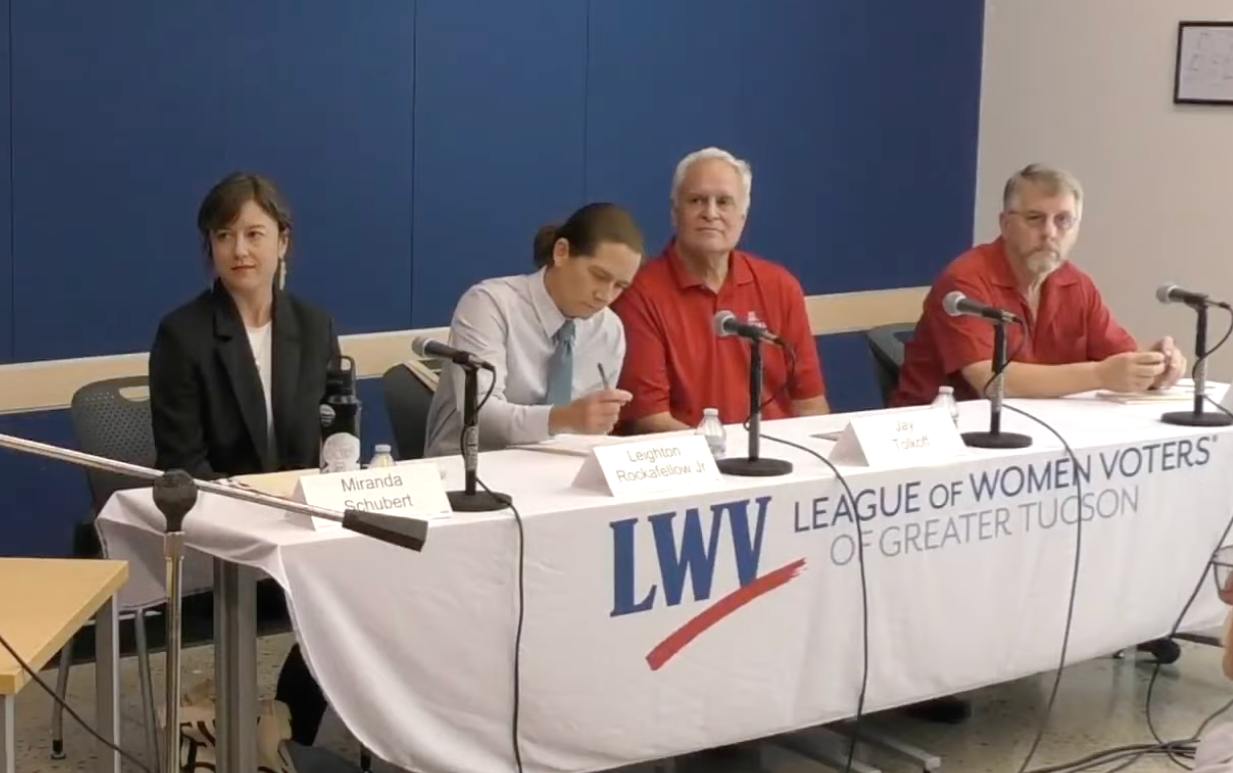
Candidates vying for Tucson’s Ward 6 City Council seat laid out competing visions for public safety, homelessness and transparency at a recent community forum, emphasizing grassroots leadership and more responsive government ahead of the city’s August primary.
Democrats Miranda Schubert, Leighton Rockafellow Jr., James Sinex and Republican Jay Tolkoff were all in attendance at the League of Women Voters of Greater Tucson’s July 1 candidate forum at the Martha Cooper Library.
The forum consisted of audience questions with topics ranging from election systems to Project Blue to public safety.
Here’s where the candidates stood on the various issues:
Campaign priorities
Every candidate said their campaign prioritized homelessness, public safety, economic accountability, and community-driven solutions.
Rockafellow said the homelessness crisis is affecting both unhoused individuals and everyday Tucsonans.
“I am just devastated by what I see on our streets,” he said.
Schubert touched on the link between homelessness and the lack of affordable housing, which she said are intertwined and central to her platform.
Tolkoff pointed to budget inefficiencies, emphasizing the need for the City Council to hold the city manager accountable for both creating and carrying out the budget.
“Our budget has gone up 71% in the last five years, and I don't see the results from it,” Tolkoff said, calling the increase a tremendous waste that he would like to address.
Sinex called for “community-based decision-making,” stressing that elected officials should represent the entire community, not just their party.
Schubert echoed the sentiment when talking about her approach to public safety, which she said included finding community solutions to community safety.
Approaches to homelessness
All candidates said they would support designated campgrounds with running water and trash services for unhoused individuals, but emphasized the need for broader solutions.
Rockafellow backed the creation of multiple campgrounds and cooling centers across the city and proposed improving water access to simplify implementation, including the use of water tank systems.
Tolkoff supported the idea of campgrounds as a temporary step, saying they provide a safe place for individuals to take shelter while officials work to address underlying issues like disability or addiction
Sinex proposed investing in tiny homes and solar infrastructure, something he said is already supported by non-governmental organizations within Tucson.
Schubert also supported the development of scattered campground sites and highlighted the need for a comprehensive continuum of care, noting that most people who are unhoused are not ready to be placed in housing and left alone.
“They need to be vetted through a clear process with clear guidelines and support so they don't fall through the gaps, so that they get the services and the treatment that they need.”
Police funding and crime
Candidates largely agreed on the need for change in the police department, but proposed different approaches to addressing the issue. Tolkoff and Rockafellow Jr. both suggested higher pay as a way to increase recruitment and fill vacancies.
Tolkoff said that he’s had discussions about increasing police funding, but that he’s been told that is not what Tucson wants.
“They responded, ‘Well, the people in Tucson think the police make too much money.’”
Rockafellow said that nearby police departments, including Oro Valley and Sahuarita, offer higher salaries, making them more appealing to those pursuing careers in law enforcement.
“I was on a ride-along with TPD two weeks ago, and I went to the county jail, and a sheriff came up to me and said, ‘Hey, if you're thinking about working for TPD, you should check out. Sahuarita, they pay better,’” Rockafellow said.

Sinex said he believes people value respect as much as pay and that they want to feel safe coming home after work. To achieve this, he said, the city needs to provide additional support and create a safer work environment.
Schubert acknowledged staffing issues but circled back to her campaign goals of reducing crime by providing more resources and affordable housing.
“When it comes to crime, by and large, most crimes are crimes of desperation and survival,” she said. “We need to provide individuals with a way to thrive, with a way to be compliant, to the system, to find jobs and employment that works for them and to find housing, and that's how we prevent crime.”
Project Blue
Candidates also weighed in on Project Blue, a proposed large-scale economic development project involving the construction of a data center campus on Tucson’s southeast side. The Pima County Board of Supervisors approved a purchase agreement two weeks ago, but the Tucson City Council still needs to vote on whether to begin the annexation process and enter into a development agreement.
The candidates expressed near-universal skepticism of the project, mainly due to a lack of transparency
“If (the public) cannot trust the elected officials with the information, then there's something wrong there,” Sinex said.
He added that Arizona needs to watch its water usage and that a cooling facility may not be the best option for the desert.
Schubert, an environmentalist, is concerned about the potential environmental impacts of the project.
“I am a firm no until I learn more information that alleviates my concerns about its impact on the security of our water future, the long term impacts to our residents and economically speaking as well,” Schubert said.
Rockafellow and Tolkoff agreed the project presents a major business opportunity, warning that turning it down could harm Tucson’s reputation with future investors.
“I want to understand if what is being proposed is physically feasible, attainable and possible, because if it is, this is an opportunity for Tucson to show the world how you can build a sustainable industry out in the desert with 100% reclaimed water and solar power,” Rockafellow said.
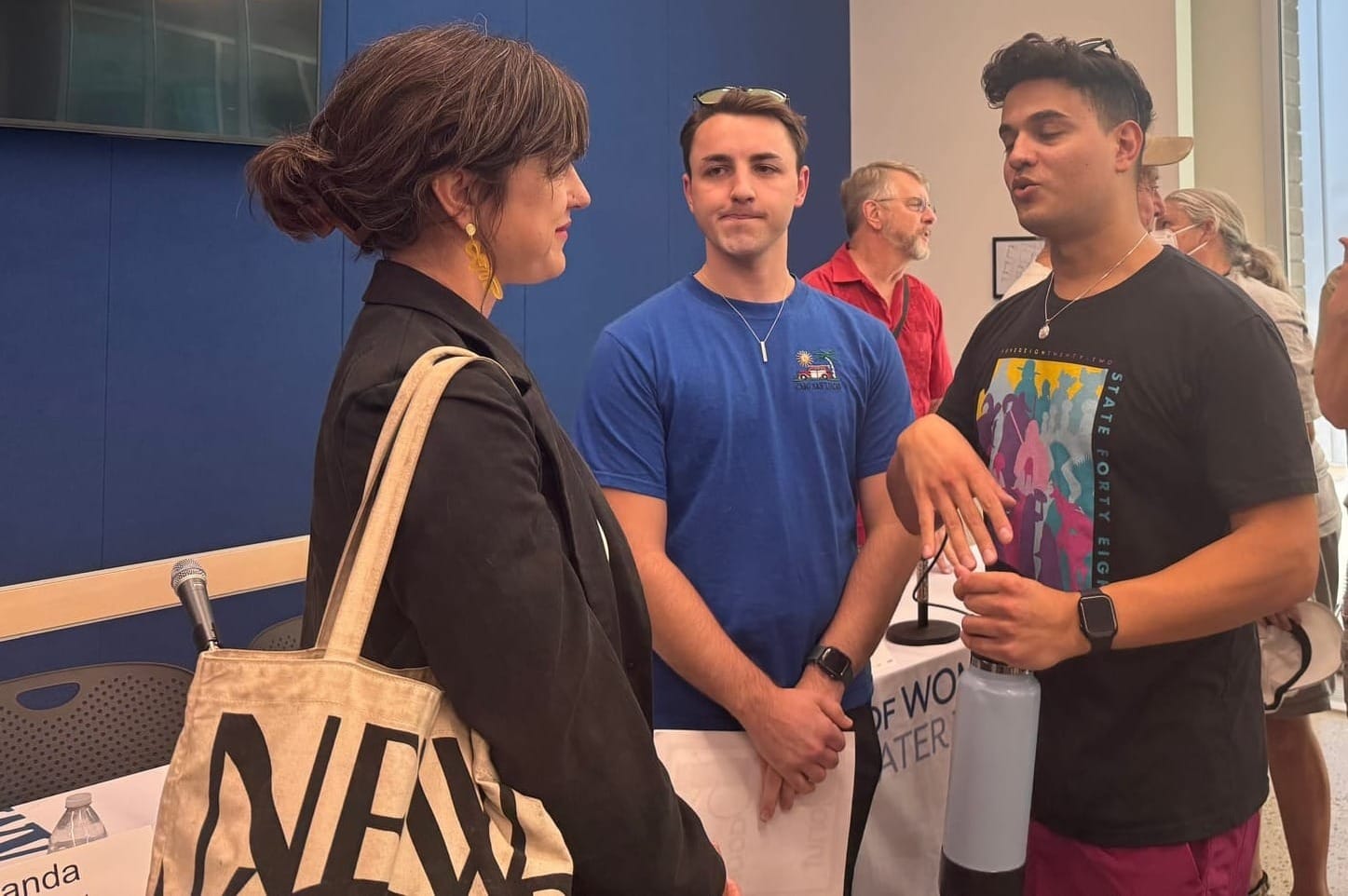
Communication
All candidates said strengthening communication with constituents is a top priority. Schubert proposed increasing accessibility by meeting people where they are and providing clear, easy-to-understand information for diverse audiences.
“I believe that you bring people in by going to where they are, by meeting them where they're at, by giving them accessible information that is easy to digest,” Schubert said.
Rockafellow suggested turning to social media to maximize traction and community involvement.
Tolkoff suggested expanding the ward’s office hours from four hours to eight on weekdays, saying that adjusting hours from noon to 8 p.m. would give people working 9 to 5 jobs a chance to share their concerns.
Sinex reiterated his views on community decision-making and the importance of connecting people. He also proposed the creation of a sub-ward council to assist in making decisions that would positively impact and benefit the community.
Ward-Only Elections
Tucson’s citywide voting system was the final discussion point of the night. The current system enables residents to vote for council members outside their own wards in the general election, a point that several candidates criticized.
Sinex, who made this a central campaign issue, said the system dilutes local representation.
“We can have a modern system, and we can have a better system that represents everyone, if we just choose to talk about it,” Sinex said. “There are better ways to do things than our 1929 law, which is based on outdated 1929 ideas.”
Schubert acknowledged she isn’t an expert on the issue but expressed her support in exploring new ideas.
“I'm supportive of exploring any and all ways that we can make local elections accessible to more voters,” Schubert said.
Rockafellow said the council lacks ideological diversity and should more accurately reflect Tucson’s demographics, adding that a truly representative body would include at least one Republican.
Tolkoff called the current system un-American, saying it absolutely needs to be changed.
“Those laws were created in the 1920s,” he said. “They're Jim Crow-style laws, and I think we've gotten past that.”
Emma LaPointe is a journalism, political science and German Studies major at the University of Arizona and Tucson Spotlight intern. Contact her at emma.m.lapointe@gmail.com.
Tucson Spotlight is a community-based newsroom that provides paid opportunities for students and rising journalists in Southern Arizona. Please consider supporting our work with a tax-deductible donation.

